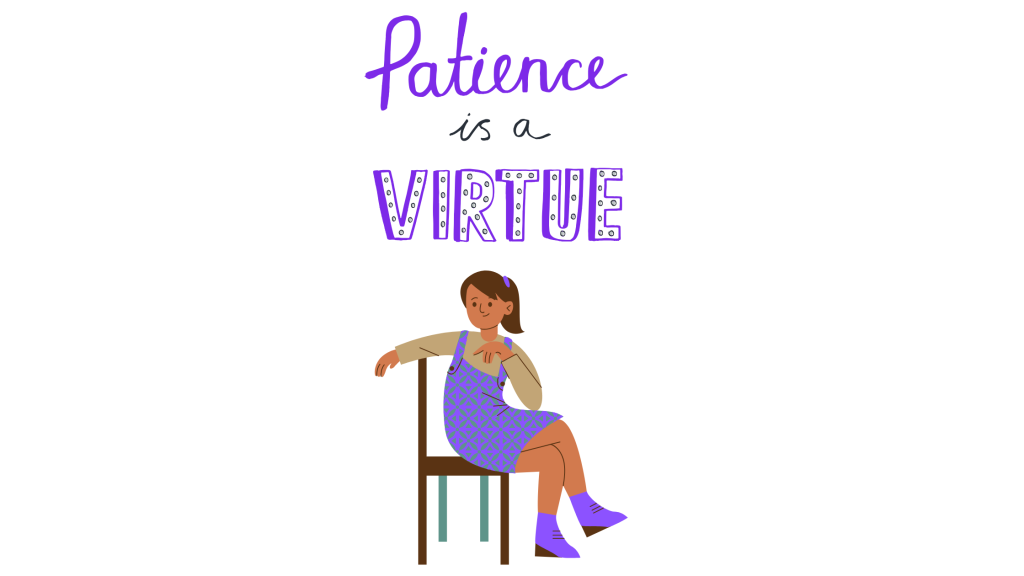You have decided to move to Spain or are already there but struggle with adapting to Spanish habits and embracing aspects of the culture.
If that’s the case—I feel you. As a Swiss woman living in sunny Valencia for over three years, I still struggle to fully embrace some Spanish habits, no matter how healthy and beneficial they are.
One thing I loved immediately was their “live slowly and in the moment” mindset. Back in Switzerland, people are rarely this relaxed, chill, and… slow. The culture there values punctuality, precision, and efficiency above all. If you come from a similarly structured, “strict”, and punctual culture, you probably understand what I mean.
Despite loving this mindset, I find it challenging to fully embrace the relaxed aspects of Spanish culture. Coming from a background where punctuality and structure dominate, adapting to Spanish habits—like a more laid-back approach to time—feels like learning a new rhythm. Many expats from similar cultures face the same struggle, torn between enjoying the beauty of “living in the moment” and letting go of ingrained habits of efficiency. In this article, I’ll explore how to navigate these cultural differences, share my experiences, and offer practical tips for adapting to Spanish habits while finding your balance..
Adapting to Flexible Schedules in Spain: Embrace Living in the Moment

As a Swiss, punctuality has always been second nature to me. I grew up in a culture where being five minutes late was unthinkable, and arriving early was the gold standard. So, when I moved to Spain, I was shocked by the relaxed attitude toward time. Spaniards are much more flexible with schedules, often starting plans later than expected—sometimes even an hour late.
At first, I was frustrated. I’d find myself tapping my foot at the meeting point, wondering if my friends had forgotten me or didn’t value my time. Waiting alone felt like a clear sign of disrespect.
But as time went on, I started adapting to Spanish culture and saw things differently. I realized this wasn’t about rudeness—it was about savoring the present moment. In Spain, time isn’t rigid or restrictive. It’s fluid, allowing for relationships and experiences to take center stage.
Slowly, I embraced this laid-back approach. I began to see delays not as inconveniences, but as invitations to pause and enjoy the little things we often overlook. Waiting became a chance to savor life’s simple pleasures. I’d sip coffee while soaking in the lively street scene, admire beautiful architecture, or catch up on reading. Sometimes, I’d use those moments to call family or friends, ticking off the little tasks I’d otherwise postpone because of a packed schedule. What once felt like wasted time turned into a valuable opportunity to slow down and reset.
Even though I’m still a die-hard early arriver (old habits die hard!), my perspective has shifted. Now, I see these extra minutes not as downtime but as a chance to reclaim some of the small joys we often miss in the rush of daily life. So, the next time you’re left waiting, try to see it as a moment to breathe, reflect, and do something you rarely have time for. It’s a subtle but rewarding way to embrace a slower pace of life.
Extended Mealtimes and Social Eating

Meals in Spain, especially lunch, are long, social affairs. The tradition of sobremesa—lingering at the table long after eating—is a cherished time for friends and family to dive into deep conversations, share stories, and strengthen connections. It sounds lovely, right? It is. However, adapting to Spanish habits like this can take time, especially if you come from a culture where meals are quick and practical—much like everything else.
If you come from a culture with structured meals, sobremesa might feel unproductive or even overwhelming. You likely eat, finish, and move on without lingering. Sitting at the table for hours might test your patience instead of helping you relax. Adjusting to this slower rhythm can feel challenging at first. I’ve felt that way myself—struggling to fully relax, even when surrounded by laughter and engaging conversation, because I couldn’t shake the feeling of “wasting time.”
Over time, I realized that enjoying sobremesa requires letting go of that pressure to move on to the next task. Use this opportunity to slow down, savor the meal, and focus on the people around you. Try to participate actively in the conversation—ask questions, share stories, and allow yourself to connect. It’s not about the efficiency of the moment but the quality of the experience.
One thing that helped me adapt was resisting the urge to check the clock. In cultures that prize punctuality and time management, it can feel instinctive to measure every moment. In Spain, time is seen as more fluid, and letting go of that “rush” mindset allows you to embrace the unhurried pace. Instead of worrying about how long the meal is taking, focus on savoring the present moment.
When restlessness creeps in, I find it helpful to step outside my usual frame of mind and take in the lively atmosphere. Spanish cafés and restaurants are full of life—people chatting, the hum of conversation, street musicians playing nearby, and the warm buzz of community. Allowing myself to absorb this energy shifts my focus away from the ticking clock and toward the simple joys of the moment.
That said, adapting to Spanish habits doesn’t mean compromising who you are. If you feel like the meal is stretching on too long, it’s okay to politely excuse yourself. Finding a balance is key—embrace the traditions that enrich your experience and let go of what doesn’t serve you. After all, cultural exchange is about enhancing your life, not overwhelming it.
Embracing Work-Life Balance in Spain: Adapting to Spanish Habits for a More Relaxed Lifestyle

The way Spaniards approach work-life balance is, hands down, my favorite aspect of their laid-back culture. People here don’t seem overly focused on career ambition or climbing the corporate ladder. The “grind culture” just isn’t a thing. Instead, the mentality is simple: people work to live, not live to work.
Coming from a culture where overworking is normalized, it’s refreshing to see a different approach in Spain. In my home country, job titles often determine social value—a lawyer, for example, is typically seen as more successful than a sales assistant. Here, the focus seems to be on finding balance and avoiding unnecessary stress at work, preserving energy for what truly matters after hours.
In Spain, the day doesn’t end when work does. Instead of going home to collapse on the couch or mindlessly watch TV until bedtime, people make time for the things they enjoy. Whether it’s grabbing a beer with friends (ir de cañas), playing a game of paddle, or spending quality time with family, personal time is celebrated and fully embraced.
This difference is even more striking because of the sunny weather and late dining culture. The mild climate invites people to be outside year-round, and late dinners naturally extend the evening, making it feel like there’s more time in the day. Combined with a less stressful work environment, this creates a lifestyle where there’s energy—and time—to pursue hobbies, nurture relationships, and truly enjoy life beyond work.
I doubt you need advice on how to “adapt” to this aspect of Spanish culture. If you’re thinking about moving to Spain, or if you already live here, it’s probably because you love this lifestyle. Yes, this might sometimes mean earning less or having fewer opportunities for rapid career advancement. But if you value a healthy work-life balance, then congratulations! You’ve chosen the right country. I hope you’re enjoying it and truly living your dream.
The Siesta: Spain’s Midday Pause and the Art of Slowing Down

The siesta is often misunderstood as a long midday nap, but it’s traditionally a short rest after lunch. While siestas aren’t as common in busy cities like Madrid or Barcelona, they’re still embraced in rural areas. Life moves at a more relaxed pace there. It’s not about sleeping for hours, but about pausing to recharge during the day.
When I first arrived, one of the biggest shocks was businesses closing from 2 to 5 pm. It felt like the whole city hit pause. A wave of calm swept over the streets. Instead of enjoying this, I found myself fidgeting, unsure what to do with the downtime. I wasn’t used to such a long break in the middle of a workday.
With time, I began to see the siesta as Spain’s way of saying, “Take it easy, life’s not just a race from one task to the next.” Unlike the rapid-fire lunch breaks in countries with strict schedules, the siesta offers a mini reset. It’s a chance to slow down, shake off some stress, and return refreshed.
If you are an expat adapting to Spanish habits, the slower pace of the siesta can feel strange. Especially if you come from a culture with strict schedules, it may even be hard to embrace at first. But if you lean into it, the siesta can be surprisingly rewarding. Use the time to relax, take a stroll, or run errands without rushing. It’s a great way to be productive without the stress. Learning to appreciate the art of a well-timed pause can be the key to embracing life in Spain.
Conclusion: Adapting to Spanish Habits – Slow Down and Savor the Spanish Way of Life
Adapting to Spanish habits can feel like a big adjustment, especially if you’re used to a fast-paced, structured lifestyle. However, when you embrace the laid-back rhythm—flexible schedules, long meals with friends, or even a refreshing siesta—you start to see the beauty of slowing down. Spaniards focus on savoring each moment and finding balance between work and play, rather than rushing through life.
As you lean into this slower pace, life begins to feel more fulfilling. Whether you’re getting used to relaxed timing, enjoying endless sobremesas, or embracing the afternoon break, take a moment to soak it all in.
How are you adapting to Spanish habits? Are you still adjusting, or have you fully embraced the “live in the moment” mindset? Share your experience in the comments—I’d love to hear your story!

